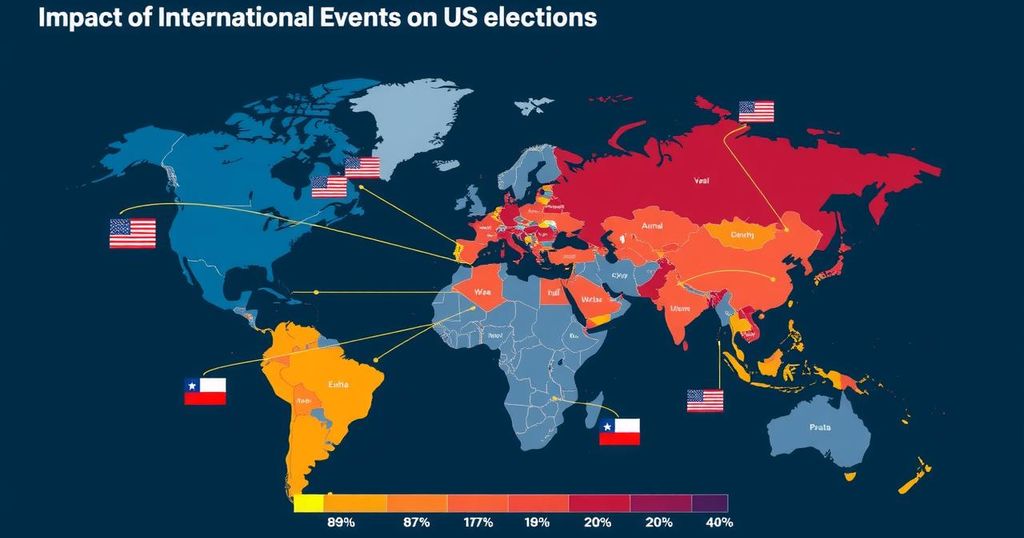The Impact of the Gaza Conflict on the U.S. Presidential Election

As the U.S. presidential election nears, the Gaza conflict has caused a significant shift among Arab American voters, traditionally aligned with the Democratic Party, many of whom are increasingly considering support for Donald Trump due to the Biden administration’s policies. This development has generated considerable anxiety within the Democratic ranks, further complicated by media outlets’ decision to withhold endorsements amid unpredictable electoral dynamics.
In the lead-up to the United States presidential election, voters are profoundly affected by the ongoing conflict in Gaza, creating a tense atmosphere for both the Democratic and Republican parties. Notably, the Biden administration’s backing of Israel during the Gaza war has prompted a noteworthy shift among Arab American voters, who traditionally align with the Democratic Party. Many are now reconsidering their support, with some gravitating towards former President Donald Trump. This emerging trend has ignited concern within the Democratic Party regarding their electoral prospects as the election draws near, making the outcome exceedingly unpredictable. As media outlets prepare for a potentially unexpected Trump victory, significant publications, including The Washington Post and The Los Angeles Times, are opting to refrain from endorsing any presidential candidate this election cycle. This decision highlights the complexities surrounding the election and the prevailing unease among voters, particularly those with ties to the affected regions in the Middle East.
The backdrop of this article is rooted in the current geopolitical climate marked by the Israel-Palestine conflict, particularly the situation in Gaza. The Biden administration’s policies and their implications for U.S. foreign relations and domestic electoral dynamics are critical points of analysis. The reactions of various constituencies, especially Arab American voters, who have historically supported Democratic candidates, are of paramount importance as their sentiments may significantly influence the election’s outcome. Observers are closely monitoring whether public opinion will sway due to the humanitarian crises and policies championed by candidates.
In conclusion, the Gaza conflict is playing a pivotal role in shaping voter sentiment as the U.S. presidential election approaches. The Democratic Party faces the challenge of reconciling its support for the current administration’s policies with the concerns of Arab American voters, which could potentially tip the balance of the election in favor of Donald Trump. Additionally, the media’s cautious stance regarding endorsements reflects broader uncertainties in the political landscape.
Original Source: www.aljazeera.com








